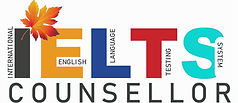Diploma in Technical English

COMMUNICATE CONCISELY, PRECISELY, AND CONFIDENTLY
Introduction
The training program will invariably, cover the major areas based on the desired outcomes, with special focus on application of the learnt skills; This syllabus will be replicated or metamorphosed to suite the levels and professional needs of each individual participant and an additional module would be included to teach them the English they need for their professions.
Course Outline
Course Code | Duration | Individual (Rs.) | Corporate (Rs.) |
|---|---|---|---|
DE012 | 6 months | 12750 | 8750 |
Study Mode
Online / Offline / Distance Education
Having strong English skills to write technical reports, explain complex ideas and new technologies to people from non-technical backgrounds are considered to be the essential skills that technical people must possess. This course starts from simple English and takes the learners towards better expression of their workplace activities. This course is designed in accordance with the Common European Framework of Reference for Languages (CEFR)., and can be taken individually or through corporate training.
Modules | Units | Credits | Hours |
|---|---|---|---|
12 | 24 | 2400 | 100 |
This course is based on the European English Proficiency Framework Level B2 to C2. Formation of Study-Groups and Batches : Participants are grouped into the following categories:
GROUP 1 : Beginners or Elementary
GROUP 2 : Pre-Intermediate
GROUP 3 : Intermediate
GROUP 4 : Upper-Intermediate
GROUP 5 : Advanced

Training Cycle
Participants would be tested for progress, and performance reviewed frequently A test based on multiple choice questions. – 30 minutes. A written examination to test the professional use of English. – 60 minutes. An interview to test the verbal communication in a meeting. – 15 minutes each A PowerPoint slide presentation to be presented in the company premises. A presentation in the classroom (online, to be recorded for assessment) – 5 to 7 minutes each. A brief project submission with their own feedback about their progress. (500 words)

Corporate Training
A custom-made training program that upgrades the English language skills to practically usable forms:
Following steps would be taken in case, the course is conducted as Corporate Training:
Step 1: Categorizing students into small groups according to their English levels.
Step 2: Improving their grammar and English usage skills.
Step 3: Collecting, introducing, and explaining the glossary of their professional fields through exercises.
Step 4: Applying the above in business communication such as telephoning, e-mailing, reporting, etc.
Step 5: Training all of them to create and deliver presentations professionally (includes PowerPoint usage.)
Step 6: Tracking progress through assignments and regular reviews.
Step 7: Reviewing final outcomes through a practical approach

Who needs the
Diploma in Technical English
?
A Diploma in Technical English can be beneficial for various individuals based on their goals and contexts. Let’s explore who might benefit from such a diploma:
1. Engineering Students and Professionals:
Undergraduate Engineering Students: Enhancing technical communication skills is crucial for engineering students. A diploma in technical English equips them with the ability to write clear reports, explain complex ideas, and communicate effectively with colleagues and clients.
Working Engineers: Professionals in engineering fields often need to collaborate across borders. Technical English proficiency enables them to participate in international projects, present research findings, and engage in effective cross-cultural communication.
2. IT Professionals:
Software Developers, Programmers, and IT Specialists: Clear documentation, concise emails, and effective communication are essential in the IT industry. A diploma in technical English helps IT professionals express themselves accurately and professionally.
Technical Support Staff: Helping users or clients requires clear communication. Technical English skills enhance troubleshooting, problem-solving, and customer service interactions.
3. Technical Writers and Content Creators:
Technical Writers: These professionals create user manuals, product documentation, and technical guides. A diploma in technical English ensures their writing is precise, coherent, and accessible.
Content Writers: Whether writing blog posts, articles, or website content related to technology, a strong grasp of technical English is valuable.
4. Science and Research Professionals:
Scientists and Researchers: Communicating research findings, writing research papers, and collaborating with peers globally all require technical English proficiency.
Laboratory Technicians: Accurate lab reports and documentation rely on clear technical language.
5. Business and Management Professionals:
Project Managers: Effective communication is vital for project success. Technical English skills help project managers convey requirements, updates, and progress reports clearly.
Business Analysts and Consultants: Analyzing data, preparing reports, and presenting findings all involve technical language.
6. Students Pursuing Higher Education Abroad:
If you plan to study in an English-speaking country, a diploma in technical English can improve your language skills and prepare you for academic success.
Therefore, anyone working in technical fields, from engineers to content creators, can benefit from a diploma in technical English. It enhances communication, opens career opportunities, and ensures effective collaboration in a globalized world.

